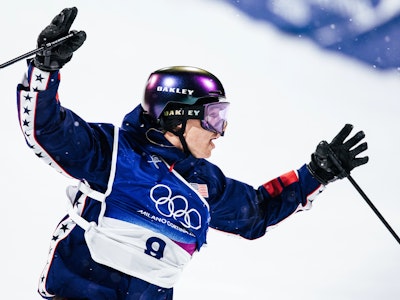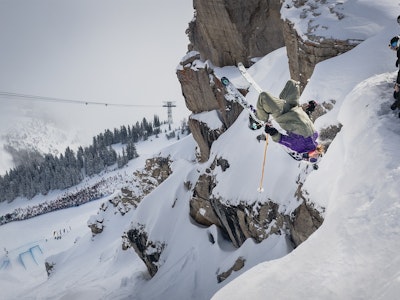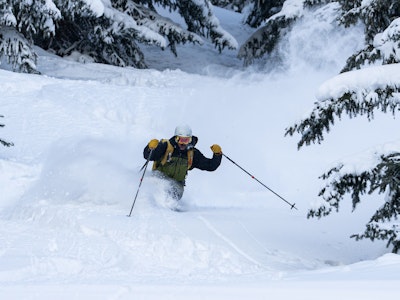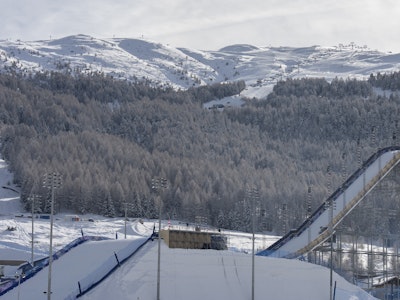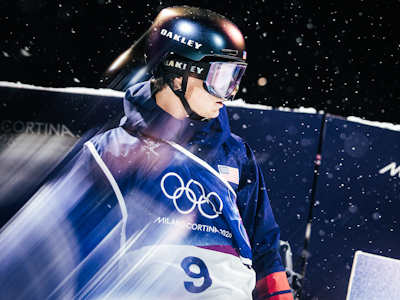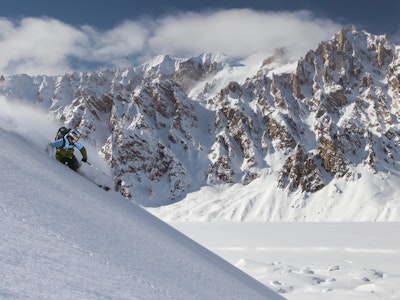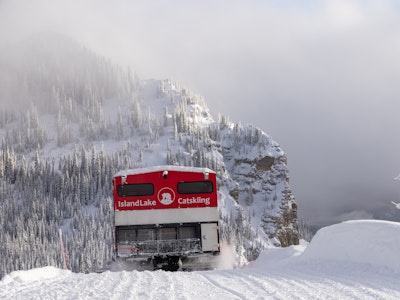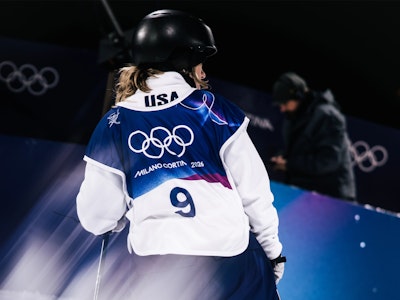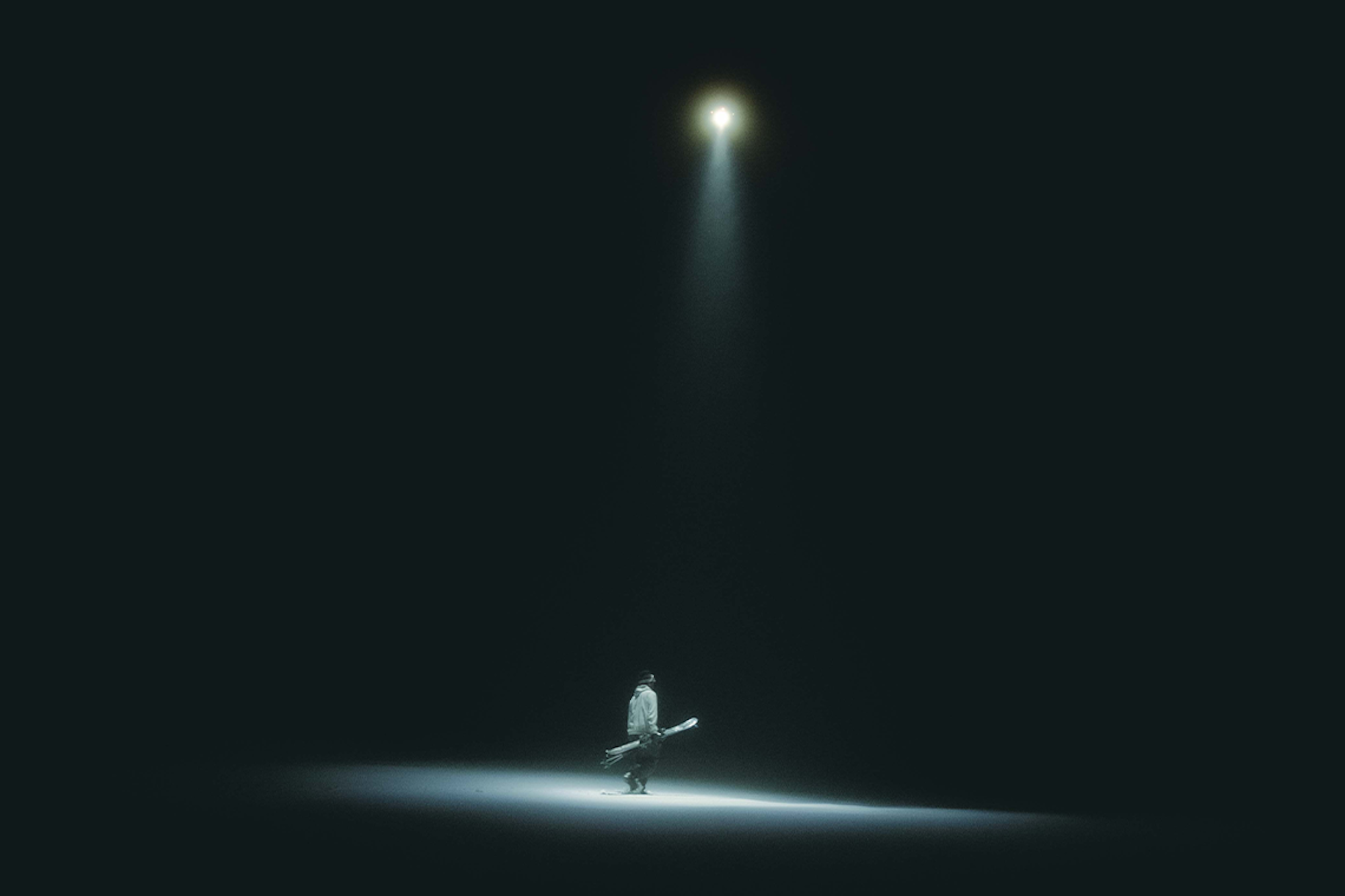Featured Image: Manuel Schneider | Skier: Dennis Ranalter | Words: Aaron Bible
WHEN PEOPLE TALK about Dennis Ranalter, better-known on the hill as D-Ran, his revered place in the sport of freeskiing becomes quickly apparent. A native of Stubai, Austria, he blends techniques from street skating, snowboarding, snowblading and even big-footing into his skiing—hitting massive jumps with unmistakable style and humility.
He’s built a career that, in some ways, is unmatched in scope and variety—from FIS competitions to Olympic appearances, a strong social media presence, high-profile sponsorships and film segments. Whether in the park or the backcountry, his skiing is mesmerizing and confident. Ranalter’s peers describe him as playful, stylish, technical and modest, yet self-assured…especially on his home turf in the Tyrolean mountains.
Ranalter was born in Innsbruck on August 22, 1994. The son of an Austrian and a Ghanaian, he grew up happy, surrounded by people who loved him and cherished the outdoors. His parents put him on skis by the time he was a toddler, as most Austrians do, and the majestic Alps soon became his playground. It wasn’t long before he got involved with the local ski club and started racing.
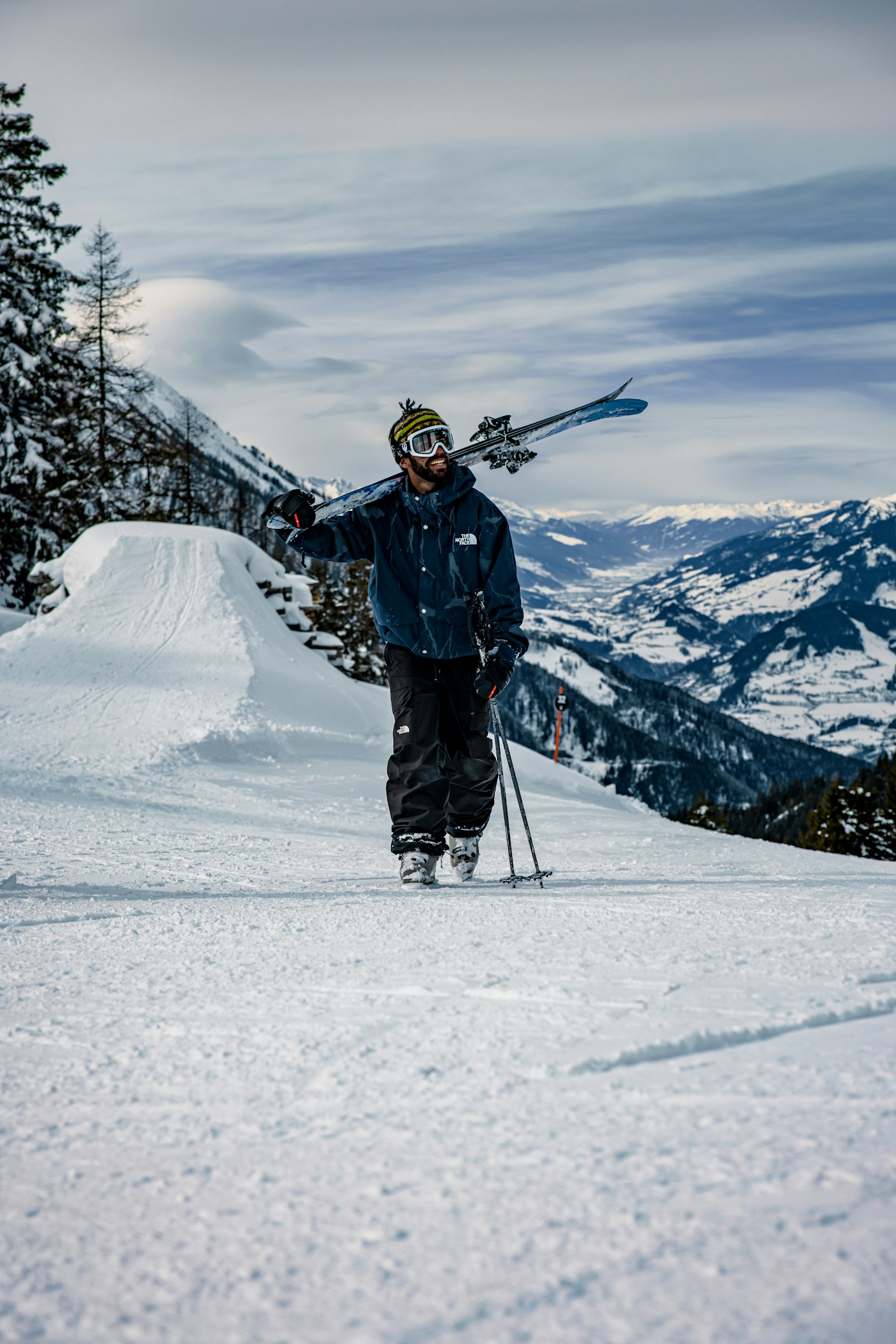
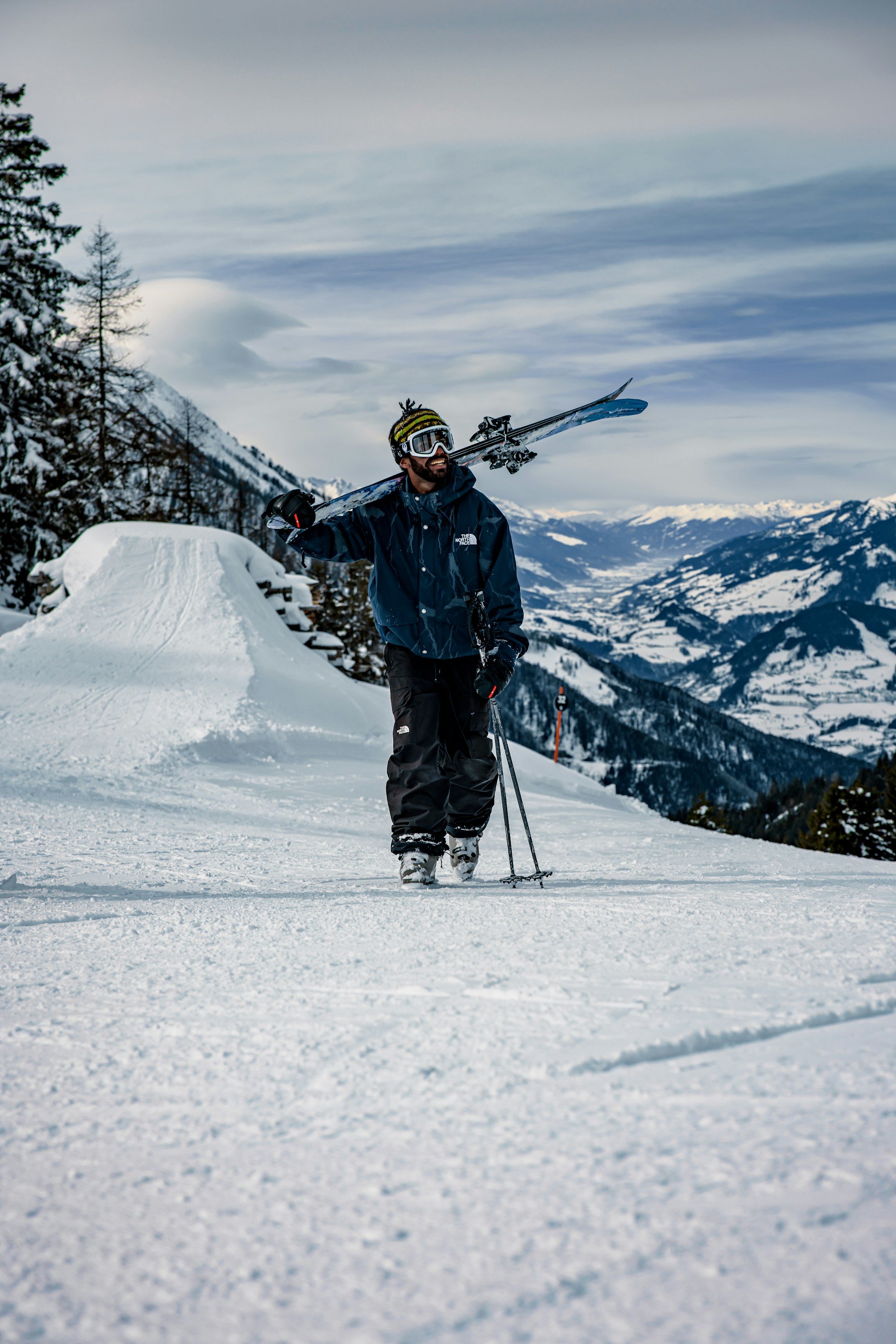
By age 12 his brother had introduced him to skateboarding, he was skiing daily after school, watching Tanner Hall ski flicks and hitting the park on the Stubai Glacier. He was inspired by his buddies around Innsbruck, building jumps and kickers in the sidecountry, and quickly progressed from a 270 to a 720. The older kids were giving him tips and showing him the speeds necessary to hit the big jumps. It took a year or so to find his groove, and by 15, he says, “I knew I really wanted to do this for the rest of my life. That this is the best thing.”
Photo: Sebastian Höllwart
Ranalter’s natural talent became evident as he quickly progressed from the local ski hill to competitive events in Freestyle, Slopestyle and Big Air. In 2007, at just 13 years old, he debuted in local slopestyle events, gaining attention for his unique style and technical skills. In 2010, he participated in his first FIS World Cup and in 2013, secured his first podium finish at the Aspen X Games with a bronze in Slopestyle. This performance marked a turning point, as he gained sponsorship from The North Face and Atomic. This also put him in a position where he could begin advocating for himself and for more equity in the sport.
“For the younger generation, representation is very important,” says Ranalter. “The more you see someone that looks like you, the more you can identify with it.”
His innovative and fluid style began to earn him a dedicated fan base, and in 2018 he achieved a personal best at the Winter Olympics in Pyeongchang. He placed 6th in Slopestyle and proved he had the ability to compete against the world’s best athletes. By the time the next Winter Games rolled around, Ranalter had an additional trick up his sleeve: a unique variation of a double cork. With this and more, he went on to compete for Austria at the 2022 Beijing Winter Olympics— finishing in the top 10—and his performances were lauded for their creativity and technical difficulty.
Ranalter ultimately found that competing on the world stage was sapping the fun out of skiing for him. “I’m competitive with myself, but I never felt like competing against someone else ever gave me anything. It started taking away my motivation for skiing and didn’t feel like the skiing I wanted to do for myself—to go out on the mountain with my friends and have fun,” he explains. “I stopped skiing for the Austrian Ski Federation and that was like a restart for me—putting all my time and effort into things I enjoy.”

Photo: Sebastian Höllwart | Skier: Dennis Ranalter
This rebirth included a good deal of film work and he was recognized as Breakout Skier of the Year for his debut segment in Matchstick Productions’ “Anywhere From Here” (2022). He continued filming with Matchstick and the Austrian-based production company, Legs of Steel, delving into a topic that for him felt like a massive elephant in the room. Known to be rather shy by nature, D-Ran had mostly let his skiing speak for itself but he took the opportunity with Legs of Steel and The North Face to tell his own story in “Descendance,” a short documentary about Ranalter’s life and family.
When the film was released in November 2023, it won a litany of awards that continued through 2024. During the creative process, Ranalter said he was able to find himself, meet his family in Africa for the first time and really delve into his heritage. He reconnected with his dad during filming, met his grandmother and said that time stood still. While the skiing in the film certainly doesn’t disappoint, the producers at The North Face didn’t approach it from the angle of a simple ski flick. Rather, it was the story of a young black man who had spent his entire life in white spaces.
“I’ve seen the way people tip toe around race in our industry,” says Noah Wallace, Sports Marketing Manager and Global Team Manager for Freeski. Wallace also grew up as a person of color in a predominantly white ski industry. He first got to know Ranalter as a fellow competitor and says “It’s difficult for people to talk about an athlete without putting them in a box of some kind. From my own experience, being a skier of color was always slightly weird because people want to put you in that box, but I want to be known for how good I am, not for my background. Let the skiing speak for itself and if you have a unique characteristic, then that’s something that should be celebrated.”
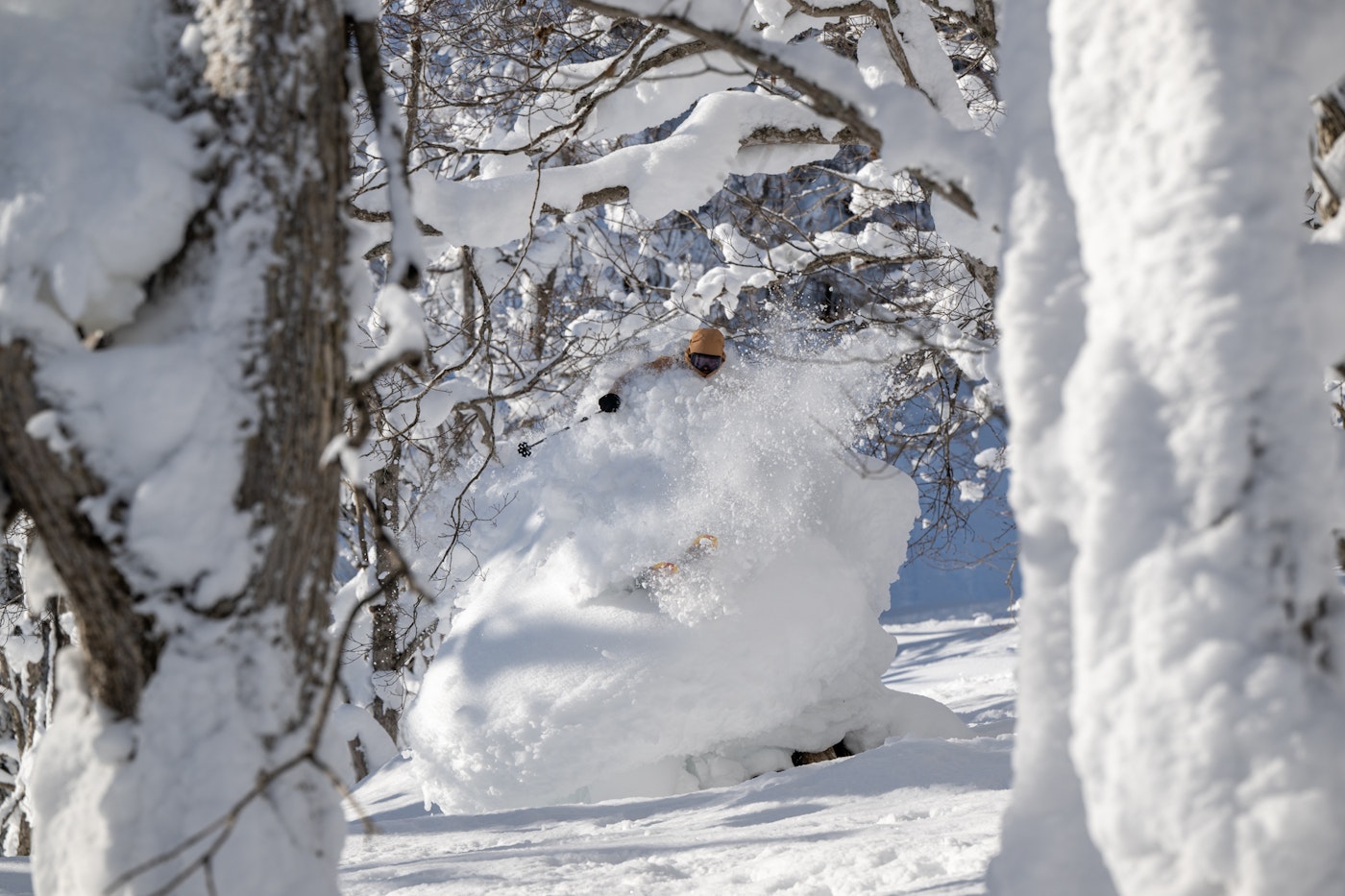
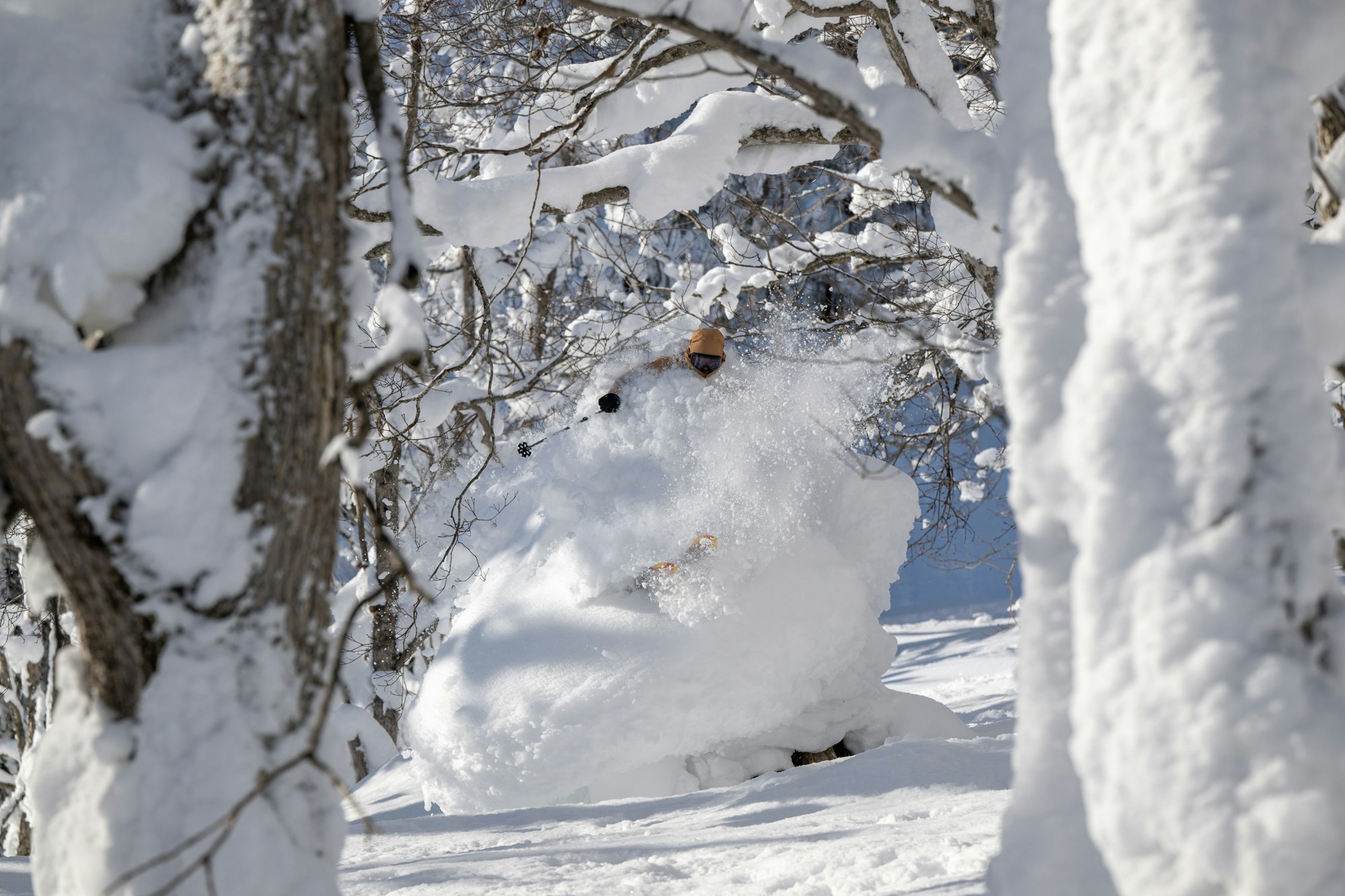
Photo: Aaron Jamieson | Skier: Dennis Ranalter
Being one of just a few Black people in a small European mountain town meant D-Ran not only felt out of place where he grew up, but was also treated differently. Over the years he’s turned that negativity, and sometimes anger, into an internal motivation on the mountain, breaking down barriers of hostility, misunderstanding and inaccessibility to become something that appears superhuman to many of us. He wants to use the opportunities he’s created to generate positivity for the next generation. Ranalter says it starts with tolerance. “Things were shaped a certain way, and there’s still a lot of work to do, but it’s not so important to look back,” he says. “The youth are important, they are the future. What people learn, what they get told in school. Teach the kids from a young age that love and togetherness has no boundaries. We’re going in the right direction, but still have work to do. We need to have awareness that everyone is worth the same, it doesn’t matter your skin color. 100-percent, everybody is worth the same.”
According to data from the National Ski Areas Association, only 1.5% of skiers in the U.S. identify as Black. Having watched Descendance multiple times, I was left wondering whether an American upbringing would have been any different than growing up in a small ski town in Austria, so I turned to another black athlete living in a white world: Johnny Argrow, a professional boxer and coach in Boulder, Colorado.
“Hey look, you’re my friend, you’re coming to me and you’re saying, ‘I know you’ve experienced these things, so what’s that like?’ I really respect that,” Argrow begins. “Saying ‘I don’t see color’ can be a dangerous thing to your Black friends. Because everyone does see color. When you walk into a room and you’re the only black person, you see that. It’s not, ‘if we don’t talk about it it’s going to go away.’ We have to talk about it. In boxing, if you have a sloppy jab, we have to talk about that or it’s not going to go away.”
Argrow and Ranalter both say they’ve experienced situations where people think that people of color don’t belong on the ski hill or in winter sports. Argrow says that comes from within the Black community as well. “It’s an interesting thing,” he confides, “the behaviors you pick up to make people feel comfortable around you, even though you’re not comfortable. There’s a little bit of yearning for people that look like you. At the same time, you just have to accept it, that this is your life, that you belong there, too, and you are worthy of that space.”

Photo: Daniel Schiessl (left), Sebastian Höllwart (right) | Skier: Dennis Ranalter
It’s funny how, in retrospect, a 15-year trajectory can feel meteoric. Now 30 years old, Ranalter has remained injury-free for most of his career. When you combine his on-hill talent with his interests in product design, art and film, you begin to paint the picture of a highly-talented individual with a bright future.
“For as long as I’ve known him, Dennis has been a relatively shy person,” says Wallace. “When he came out with Descendance, that was a huge thing for him to do. Putting your entire story out there for the world to see takes a lot of courage… The amount of respect he’s been developing in this community really speaks volumes and It’s been cool to hear about his plans moving forward— an in-person event and, giving back to the community. He’s been freed to find his voice and he’s gonna show the world even more what he’s made of.”
If I’ve learned anything, it’s that sliding on snow is more about celebrating what we have in common than it is about our differences. I’m not saying we’ve done everything right or that skiing isn’t too expensive, but the mountains have always been a great equalizer. When you click into your bindings and pull down your goggles, it doesn’t matter who you are. It only matters that the sides of your mouth are flying up toward your ears in a giant smile—and that’s what sets D-Ran apart far more than any other form of identity we humans feel the need to hang on to. How can we as an industry do better? Whether you feel like you see color or not, Ranalter leaves us with this wisdom: “Treat everybody the same. That is the message from my heart, treat others the way you want to be treated. It’s pretty simple to get the answer from that rule.”
This story originally appeared in FREESKIER Magazine Volume 27 Issue 2. Click here to subscribe to FREESKIER and have print copies (yes, real print magazines!) delivered right to your door.

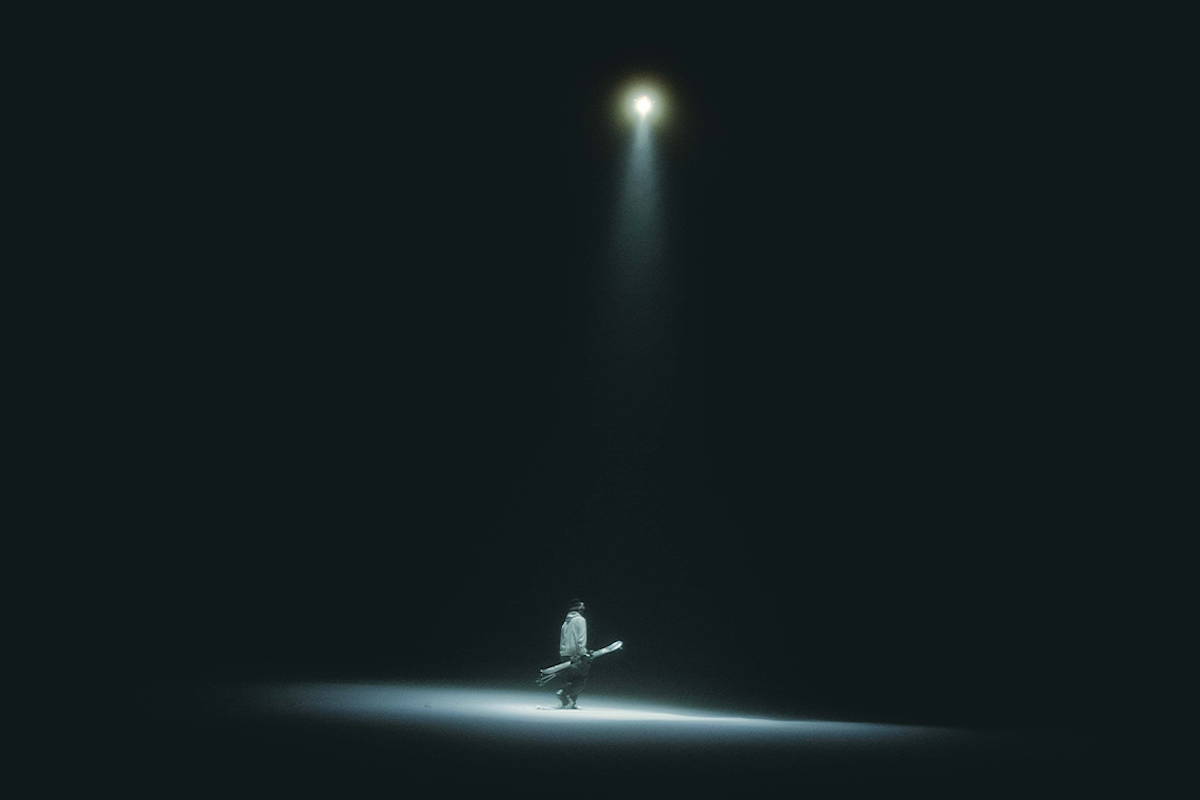
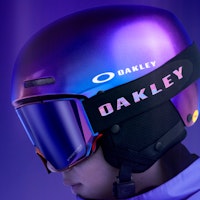
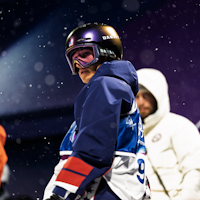
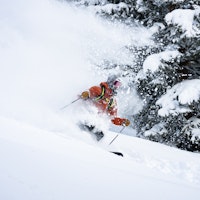
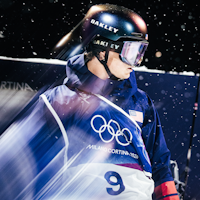
![[FIRST LOOK] New 2027 Gear from Dynastar Skis and Lange Boots](https://www.datocms-assets.com/163516/1771020784-gabriel_rovick_freeskiergearlab2024-f4dstudio-05595.jpg?w=200&h=200&fit=crop)
